Nepal earthquake: Dozens of Britons yet to be traced
- Published
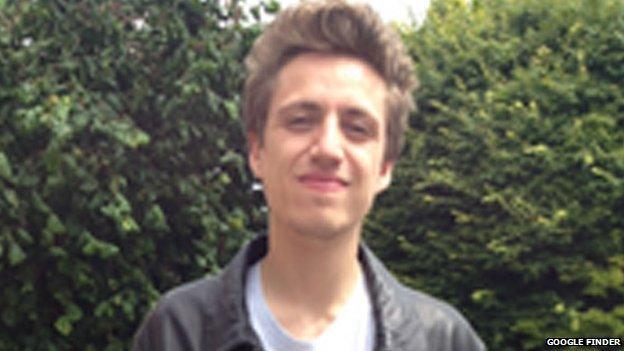
The parents of Matt Carapiet, 23, from Kent, have asked him to contact them as soon as he can
Dozens of British and Irish people have still not been traced following Saturday's earthquake in Nepal.
The Red Cross had said 90 Britons were missing, but 30 have been located and the UK Foreign Office said it was not aware of any deaths or injuries.
An RAF flight carrying vital UK aid stocks to the affected areas, along with a team of Gurkha engineers, has left for Nepal.
At least 4,000 people died and more than 7,000 were injured in the quake.
Eighteen of the dead were killed in avalanches on Mount Everest.
The International Committee of the Red Cross had released a list of 90 missing Britons, but the BBC understands more than 30 have since been accounted for.
However, there could still be additional missing Britons not on the Red Cross list.
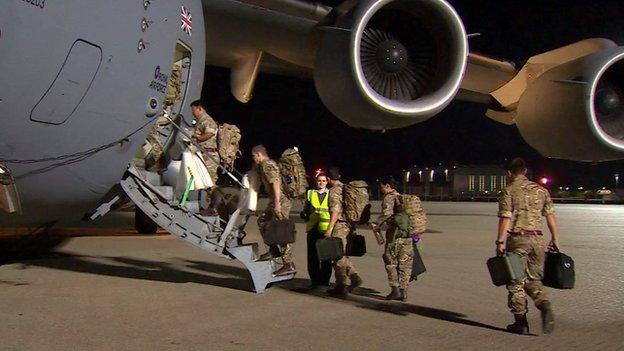
A team of Gurkha engineers is set to fly to Nepal on an RAF plane loaded with humanitarian supplies
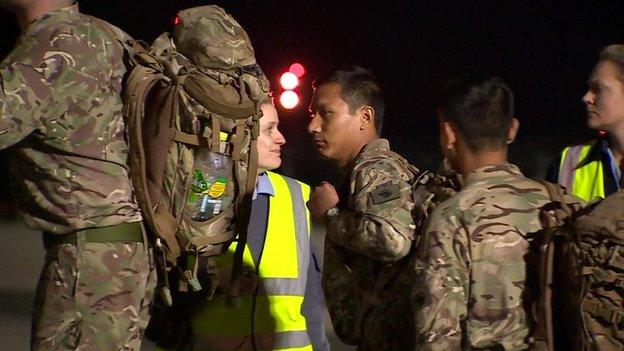
The British Army Gurkha engineers boarded the RAF C-17 transporter on Monday night
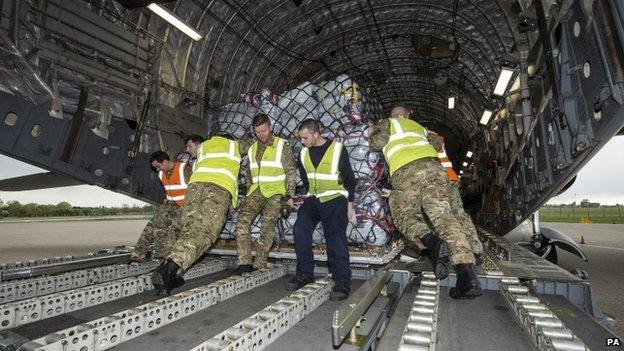
The aid includes solar lanterns to provide lighting and a means of charging phones, radios and torches
A RAF C-17 flight, commissioned by the Department for International Development, is to carry more than 1,100 shelter kits and more than 1,700 solar lanterns to help families who have had to sleep outside because their homes have been demolished or through fear of further aftershocks.
A RAF Hercules aircraft is also expected to leave the UK on Tuesday carrying additional kit.
TV appeal
The Disasters Emergency Committee, comprising of the UK's leading aid agencies, has also announced an appeal to raise money to help survivors.
The appeal, external is to launch on the BBC, ITV, Channel 4, Channel 5 and Sky on Tuesday. A donation line and website has already opened ahead of the broadcasts.
The UK government has also promised to match the first £5m of public donations.
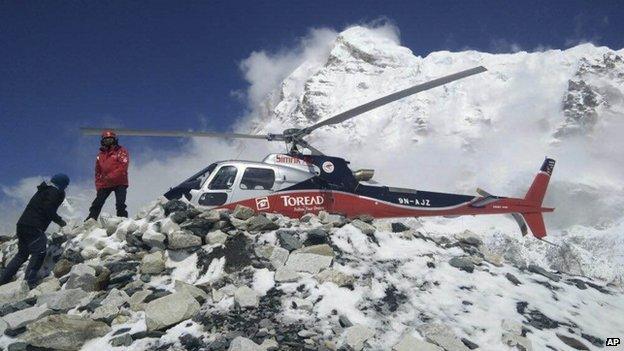
Nepalese officials said four helicopters had been deployed to rescue climbers
The UK government has already given £5m to help people affected by the earthquake. It said it had released £3m to address immediate needs and £2m would be given to the Red Cross.
Foreign Secretary Philip Hammond said "we would expect there to be several hundred British nationals in Nepal".
"British embassy staff have helped over 200 British nationals who've presented at the embassy directly," he said.
The Foreign Office said teams had also been scouring hospitals, hotels and areas popular with tourists looking for Britons that might need help.
A spokesman said: "We are urgently looking into ways we can assist further including help to get British nationals out of Nepal.
"The situation on the ground is highly challenging. Basic telephone communication and infrastructure are severely disrupted."
'Lucky to be alive'
Group Captain Simon Edwards: ''We are going to get this aid and these people into Nepal as soon as we possibly can''
British survivors have been talking about their experiences.
Alex Staniforth, 19, from Chester, was at Camp 1 on Mt Everest when the earthquake hit but he has since been airlifted back to base camp.
In a tweet, he said he was "emotionally trashed" and "very lucky to be alive".
The initial earthquake triggered a massive avalanche that ploughed through base camp and also swept away ropes and ladders, leaving climbers unable to come back down the mountain. Several aftershocks have been reported, triggering more avalanches.
James Grieve, from Kinross, is among those still stranded on Mt Everest.
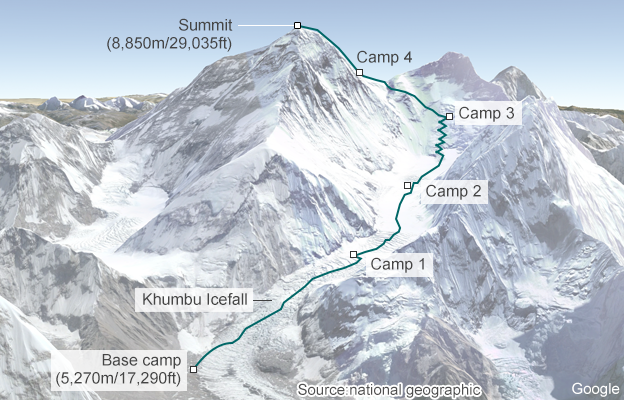
18 people were killed on Mt Everest - the mountain's worst tragedy
The families of those who are missing have posted online appeals for them to get in contact.
The parents of Matt Carapiet, 23, from Maidstone, in Kent, asked him to contact them "as soon as you can" in a post on the Google Person Finder, external tool.
Patchy mobile telephone and email communications have made it difficult to locate people, but some individuals who had been out of contact since Saturday's quake are getting messages through.
Thomas Southgate, 23 from Nottingham, has contacted his family via social media to let them know he is safe.
The families of two brothers and their friend, from Wales, have been told their loved ones are safe.
Trekkers Jason Russell, 28, from Ruabon, his brother Darren, 26, and Daniel Hughes, 36, are reportedly waiting for a helicopter to fly them to Nepal's capital, Kathmandu.
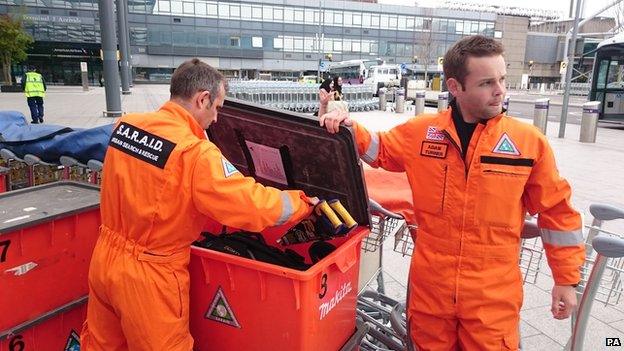
SARAID is one of the British charities flying to Nepal to help
The UK Foreign Office has released an emergency number - +44 (0) 207 008 0000 - for people worried about loved ones who may have been in the area at the time.
It advises against all but essential travel to Nepal., external
Britons in a safe place have been advised to remain there until it is safe to leave, but Britons who can leave Nepal safely have been encouraged to do so.
The Department for International Development (DfID) has already deployed a team of more than 60 search and rescue responders and medical experts to support the relief effort in Nepal.
A plane from London has been sent to Kathmandu, carrying seven search and rescue crews, four search and rescue dogs, a medical support team and a hazardous materials specialist.
The plane contained more than 11 tonnes of kit, including torches, axes, rope, search cameras, stretchers and tents.
A Foreign Office rapid deployment team to provide further consular assistance for British nationals was also on board, along with experts from leading aid agencies including the British Red Cross, Medecins Sans Frontieres and Map Action, an international disaster mapping charity.